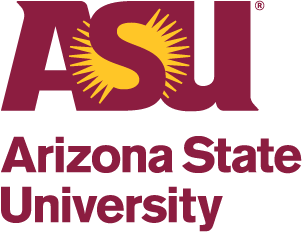
We asked W. P. Carey Alumni: Looking back, what did you learn was different than you initially thought and expected prior to joining the workforce?
Here’s what they shared:
- HR is More Than Just Talking to People
- Private Equity is a Lot More Creativity Than Smarts
- You’ll Need to Teach Your Customers What They Need
- It’s Important to Embrace the Lifeblood of Your Business – Sales!
HR is More Than Just Talking to People
When I first began my career in human resources, I think I had some of the same common assumptions that a lot of people have when thinking about HR (“All they do is talk to people”, “HR is boring”, “HR is all bureaucracy”, etc). I was pleasantly surprised to discover how analytical and strategic an HR role can be. Given the nature of the work, HR has visibility to some of the highest levels of an organization and can influence multiple areas while helping to drive business decisions.
There are so many subspecialty areas to choose from such as compensation, benefits, employee relations, HRIS, learning and development, that can require much more of a technical background than most people realize. So, whether you are people focused or are more data-driven, there are seemingly endless possibilities for anyone looking to move into the HR field.
Spencer Page, MBA ‘21, Insight
Private Equity is a Lot More Creativity Than Smarts
In school, traditional Private Equity seemed rigid and straightforward, when in reality it is really creative and flexible. I was always taught it takes money to make money; meaning that without putting significant dollars to work, you would not make a great return.
What I discovered on the actual job is you can acquire companies without even investing $1. Buying companies without writing a check was a new breakthrough for me and it completely shifted the way I thought about creative deal structures going forward.
Kazem Hafouche, BS Finance ‘16, The Najafi Companies
You’ll Need to Teach Your Customers What They Need
Being a technical founder of a deep tech startup, I miscalculated how much more customer education was required to break our solutions into the market. Skills I developed in my entrepreneurship courses at W. P. Carey helped me craft a more compelling story and be more creative in our market approach. For other technical founders: highlight what problems your tech solves for your customers. They often don’t know what the art-of-the-possible is, and they don’t care how it works behind-the-scenes as much as you do!
James Crowell, Certificate in Entrepreneurship ‘18, Crow Industries
It’s Important to Embrace the Lifeblood of Your Business – Sales!
One thing that I’ve found gets short shrift in business schools, at both the undergrad and grad school level, is sales. Sales are the lifeblood of most enterprises; the distaste that many have for sales is largely based on outdated and anecdotal views of sales that paint it as a zero-sum game. I, too, fell into this trap based on my experiences early in my career.
Modern, professional salespeople are committed to solving problems and helping their customers/clients/members get the best solution relative to their current circumstances. They stay up to speed on the issues that impact their customers and the industry; they are a fountain of knowledge that goes untapped often.
Henry Ford (and others) are often quoted as saying, “nothing happens until someone sells something.” This is true, so embrace sales and understand how it can make an outsized impact on you, your future endeavors, and the business you represent.
Christopher Bowen, BS Finance ‘98, Cognizant
Terkel creates community-driven content featuring expert insights. Sign up at terkel.io to answer questions and get published.


